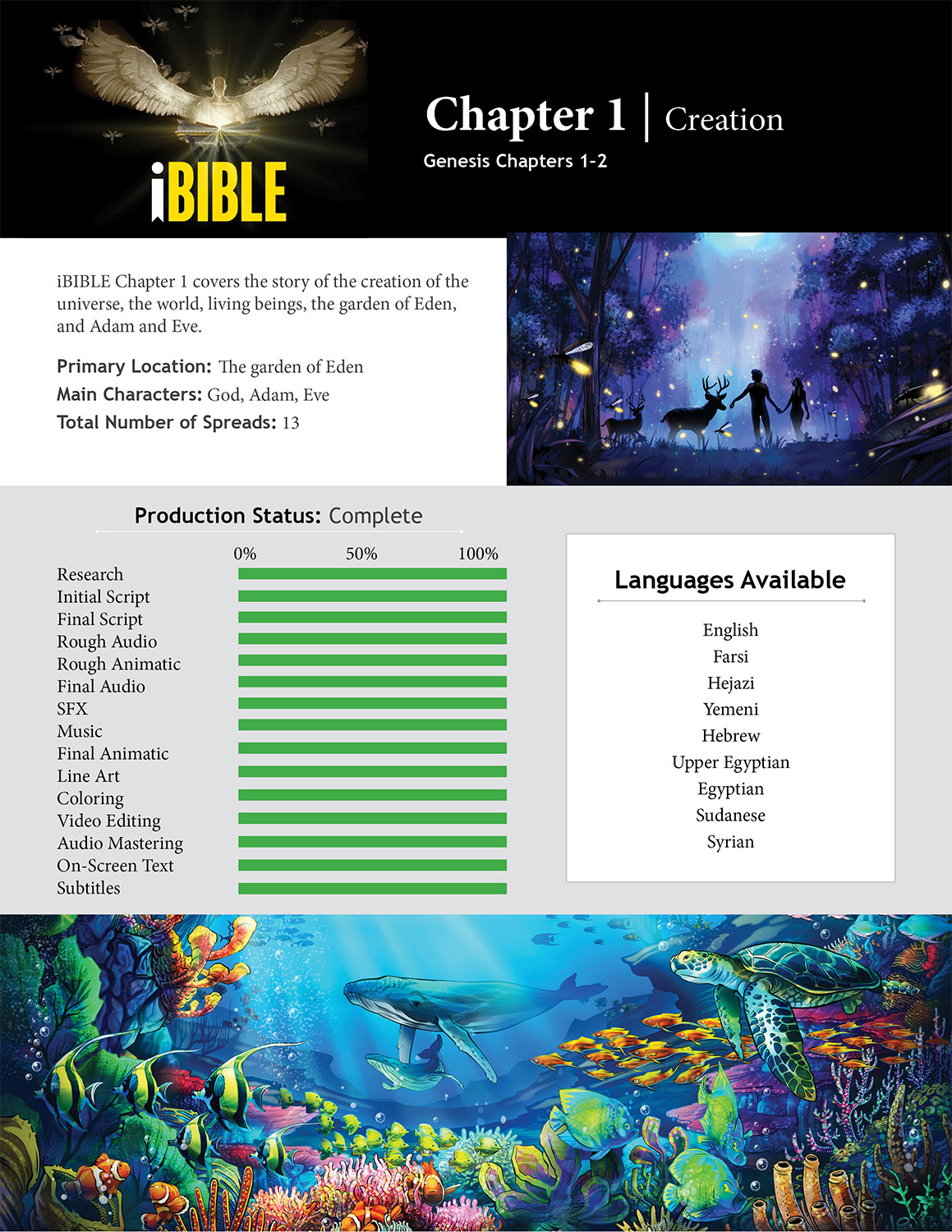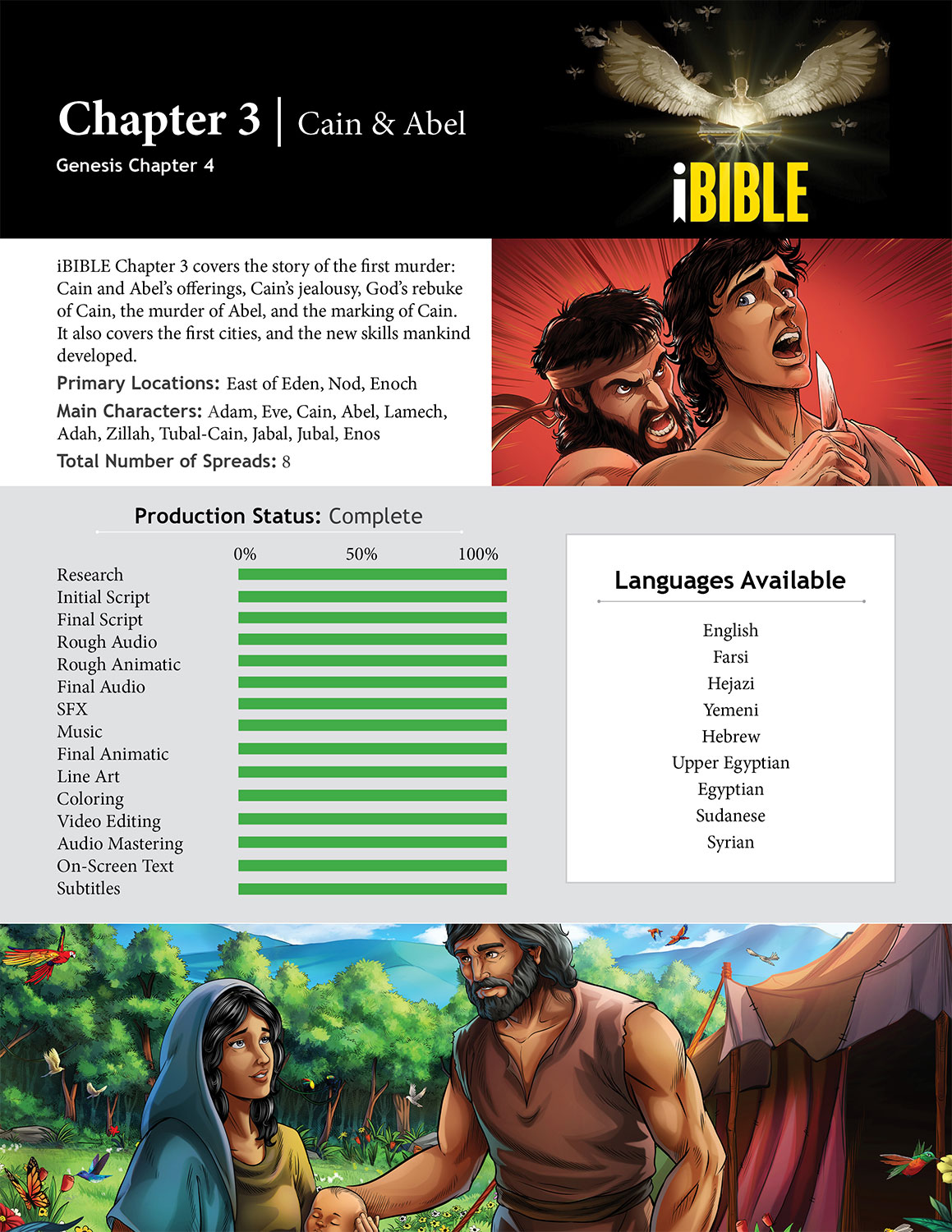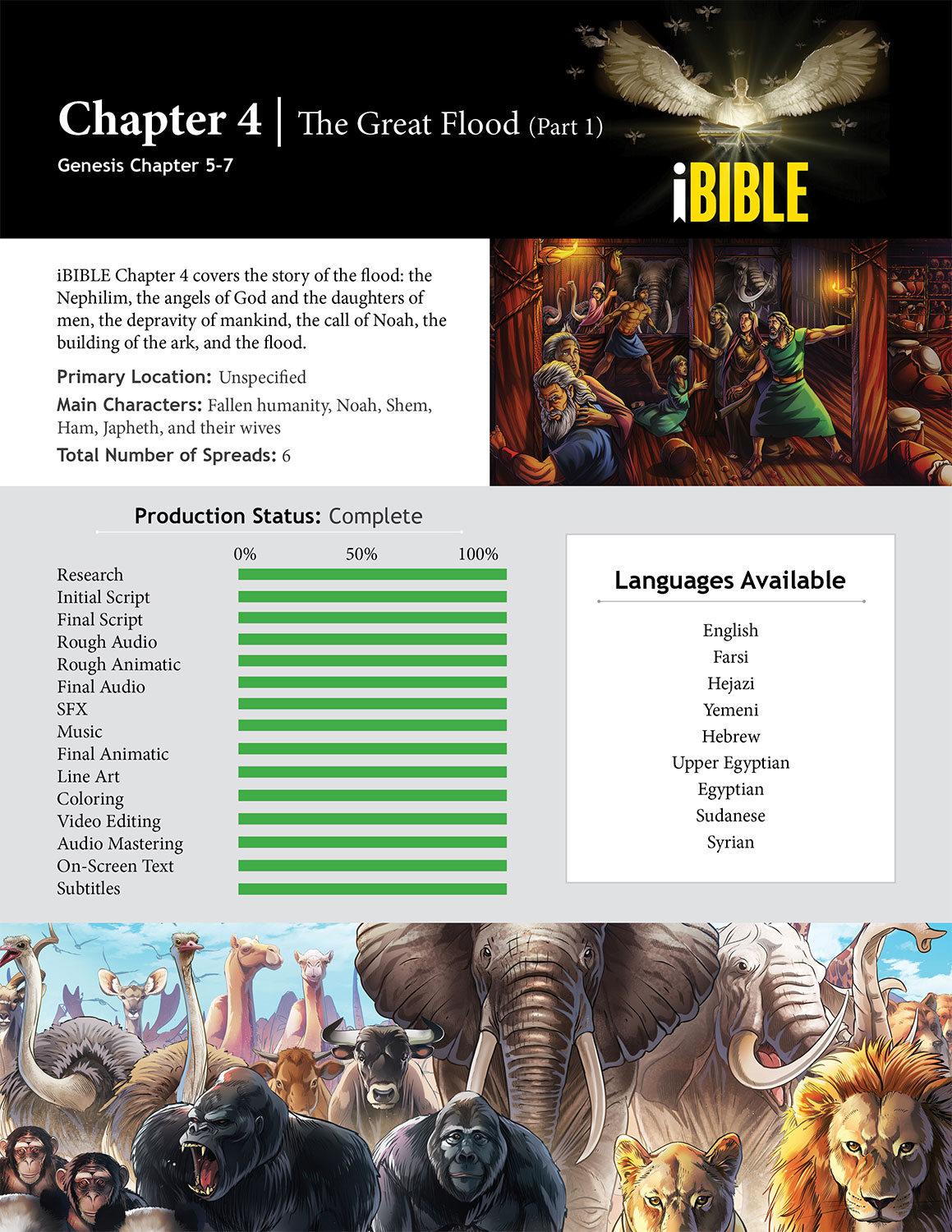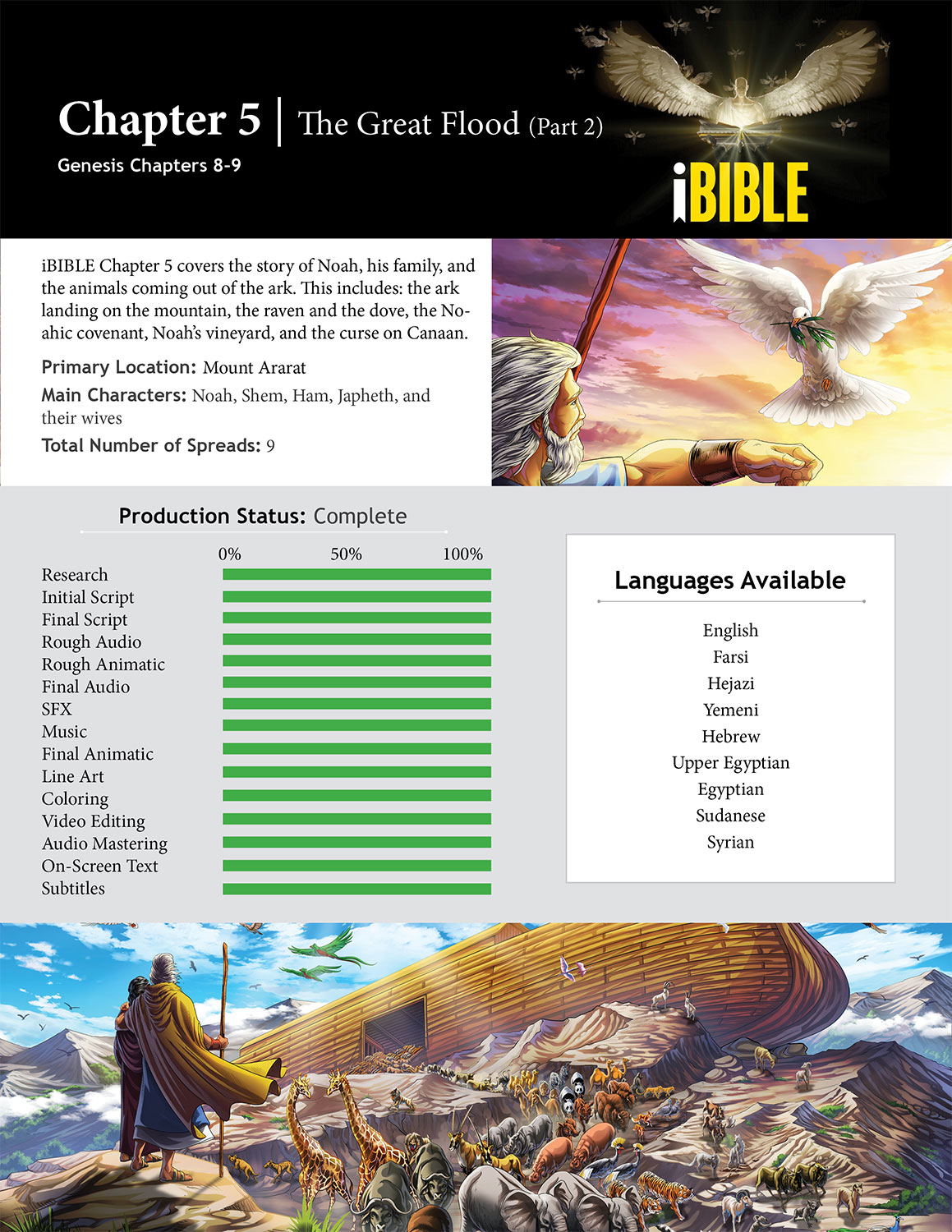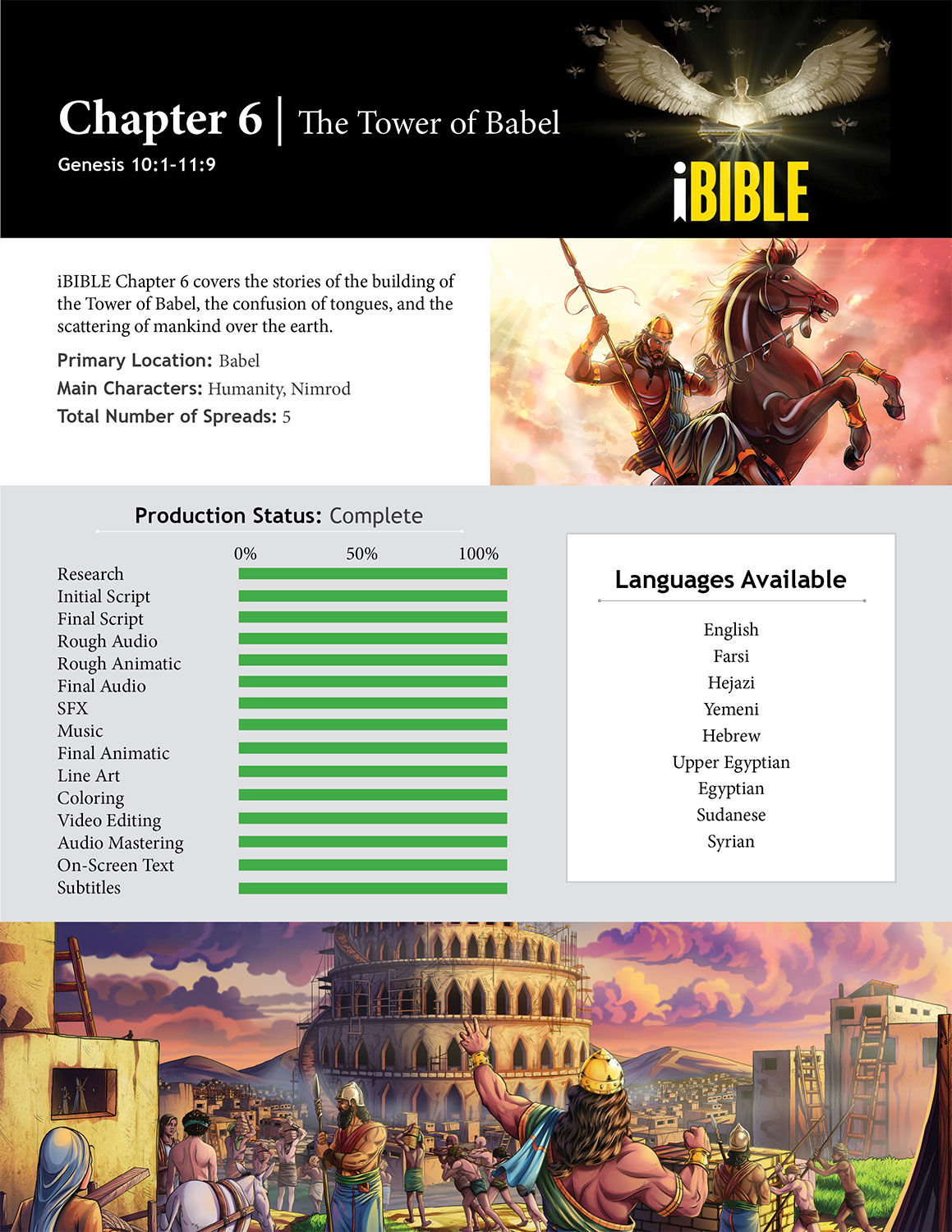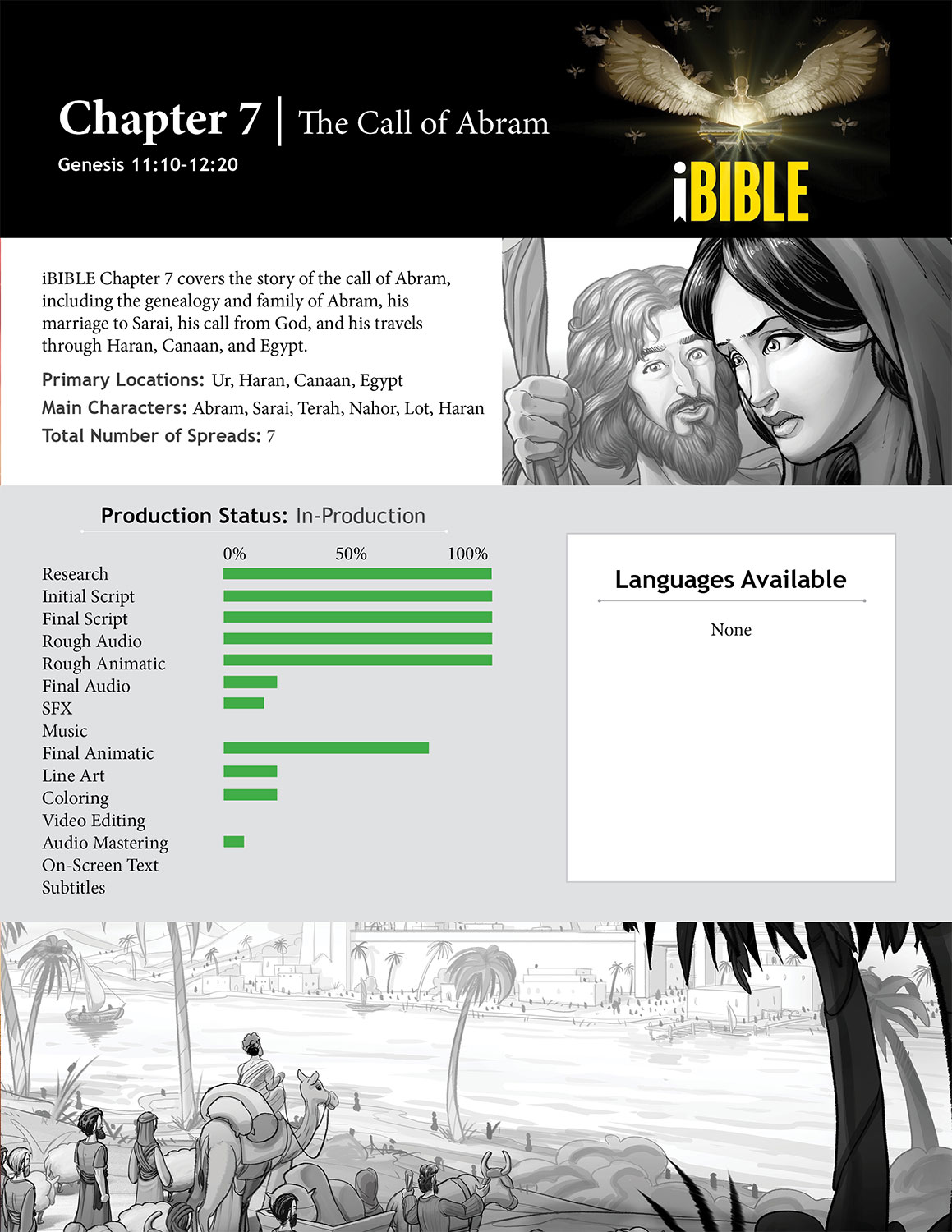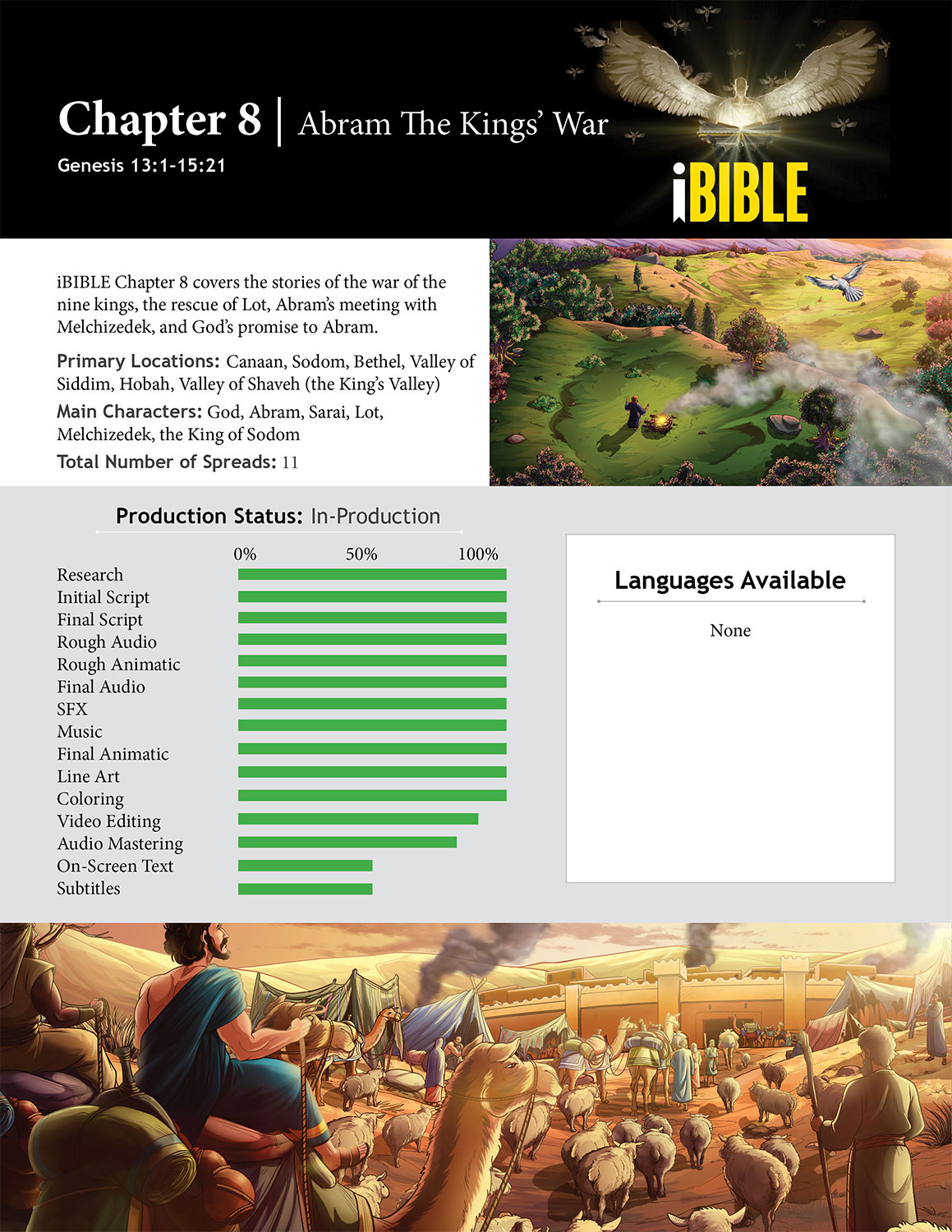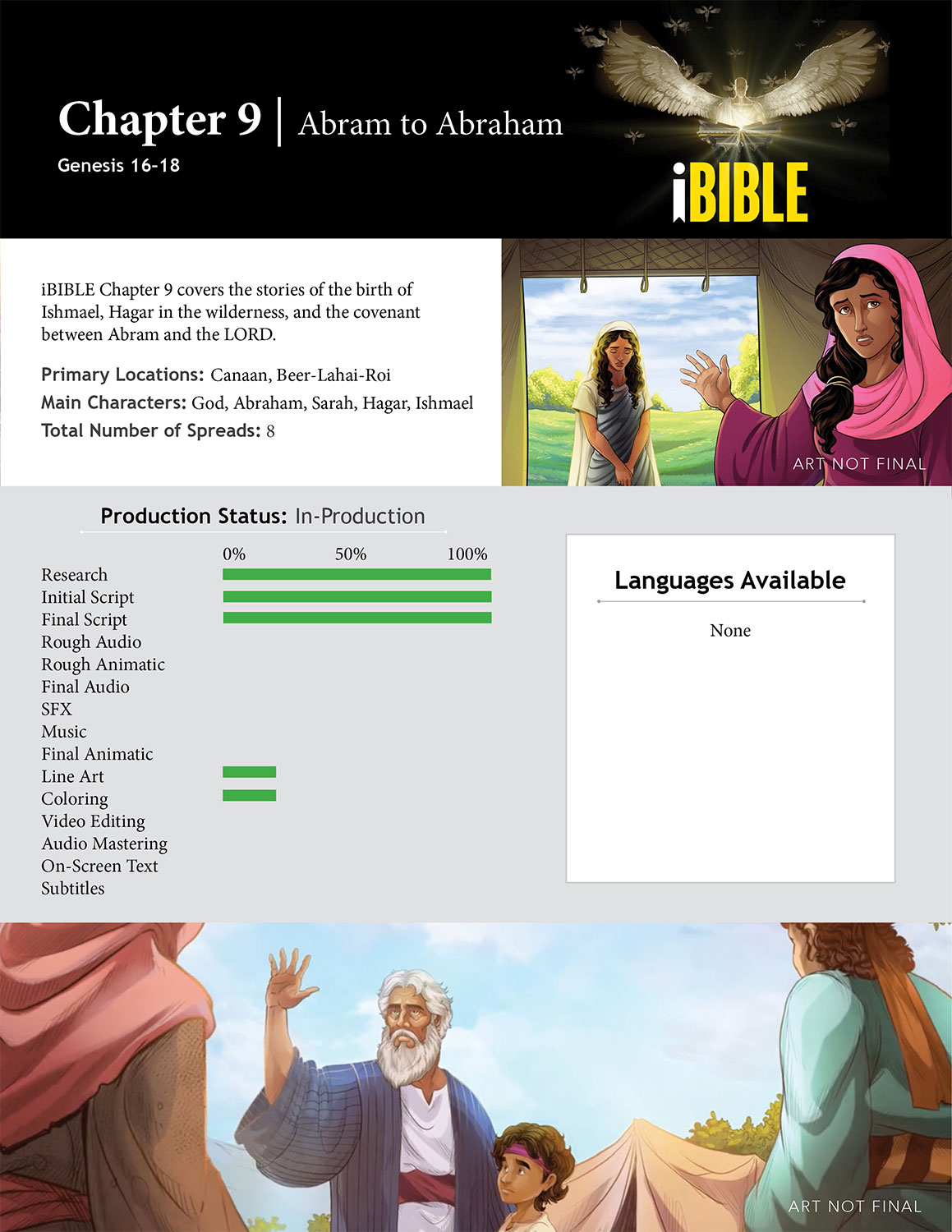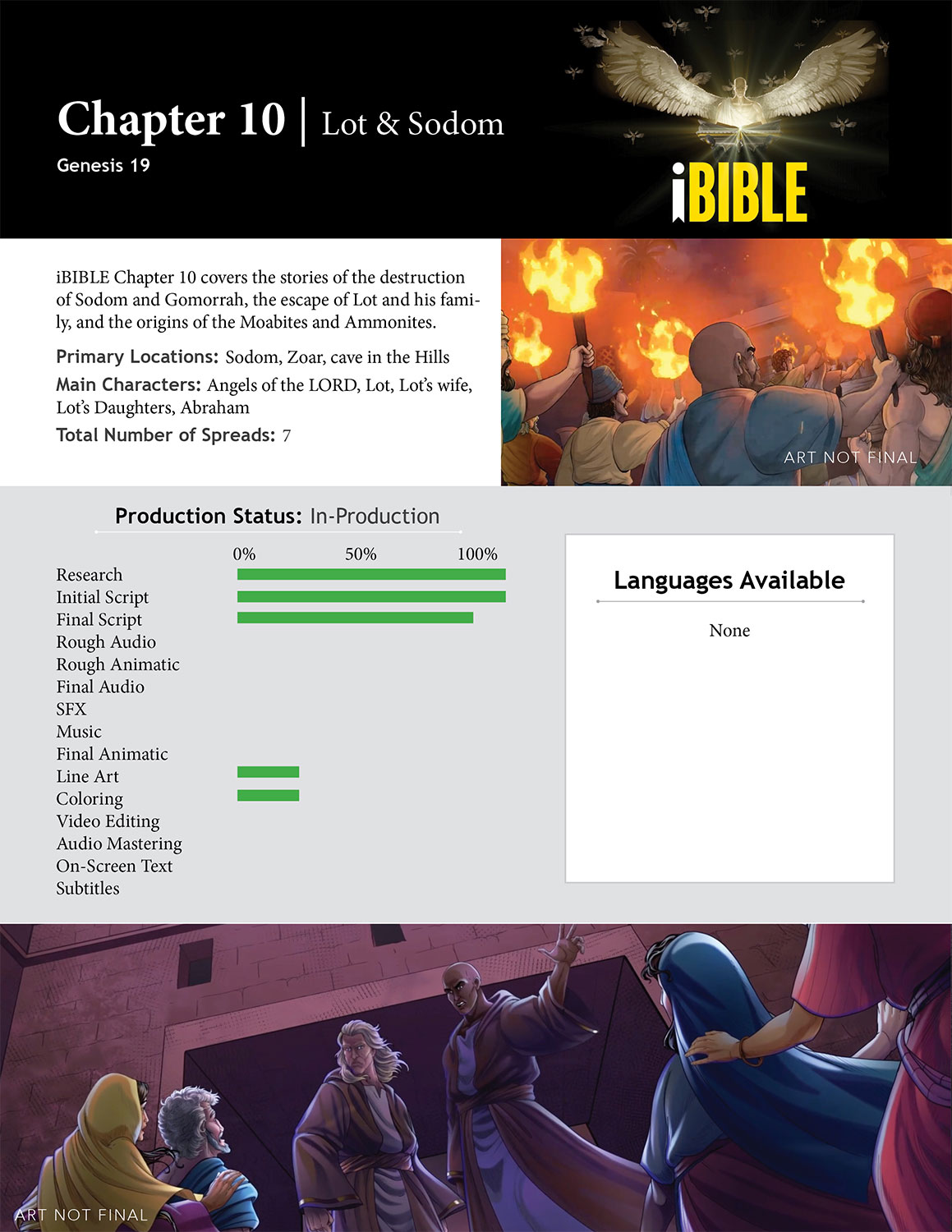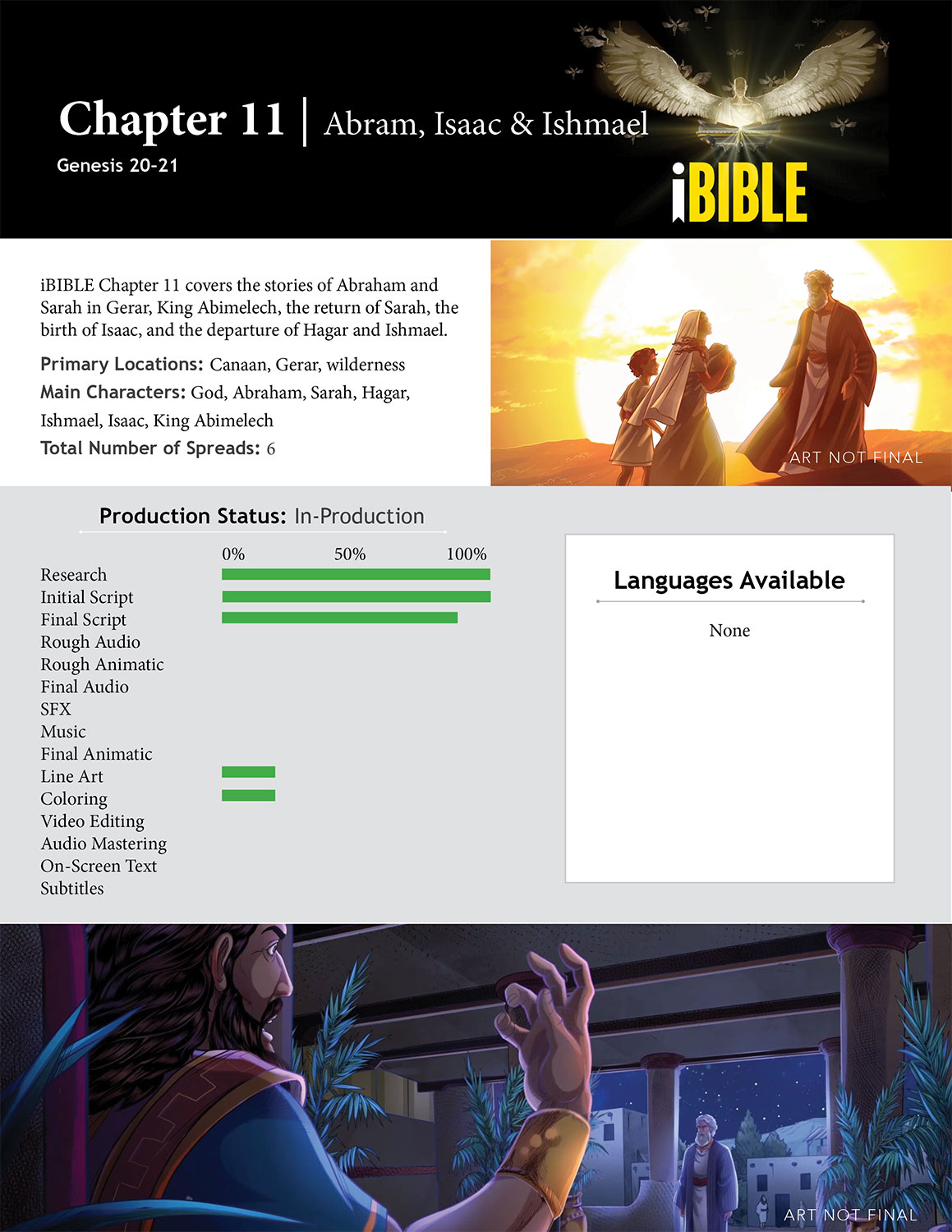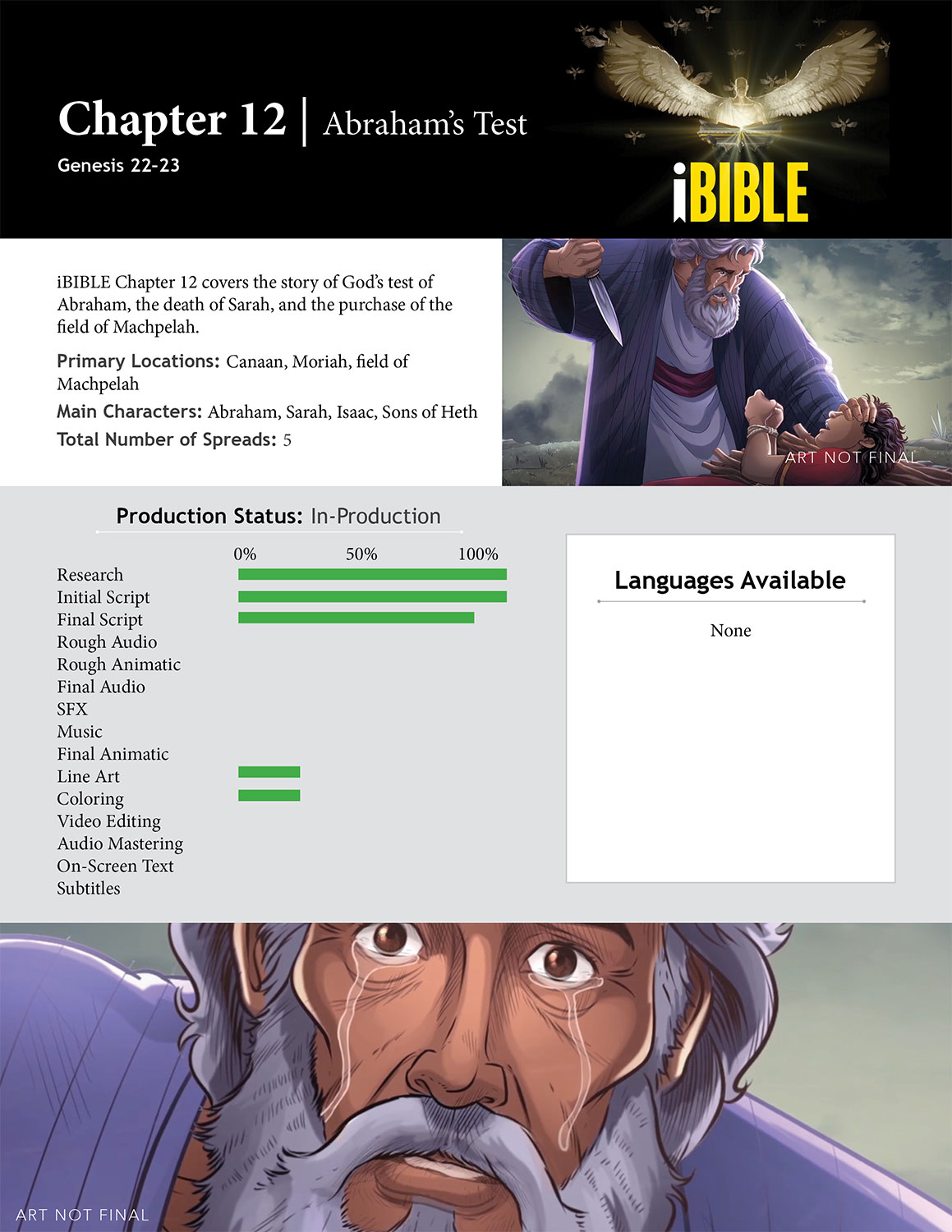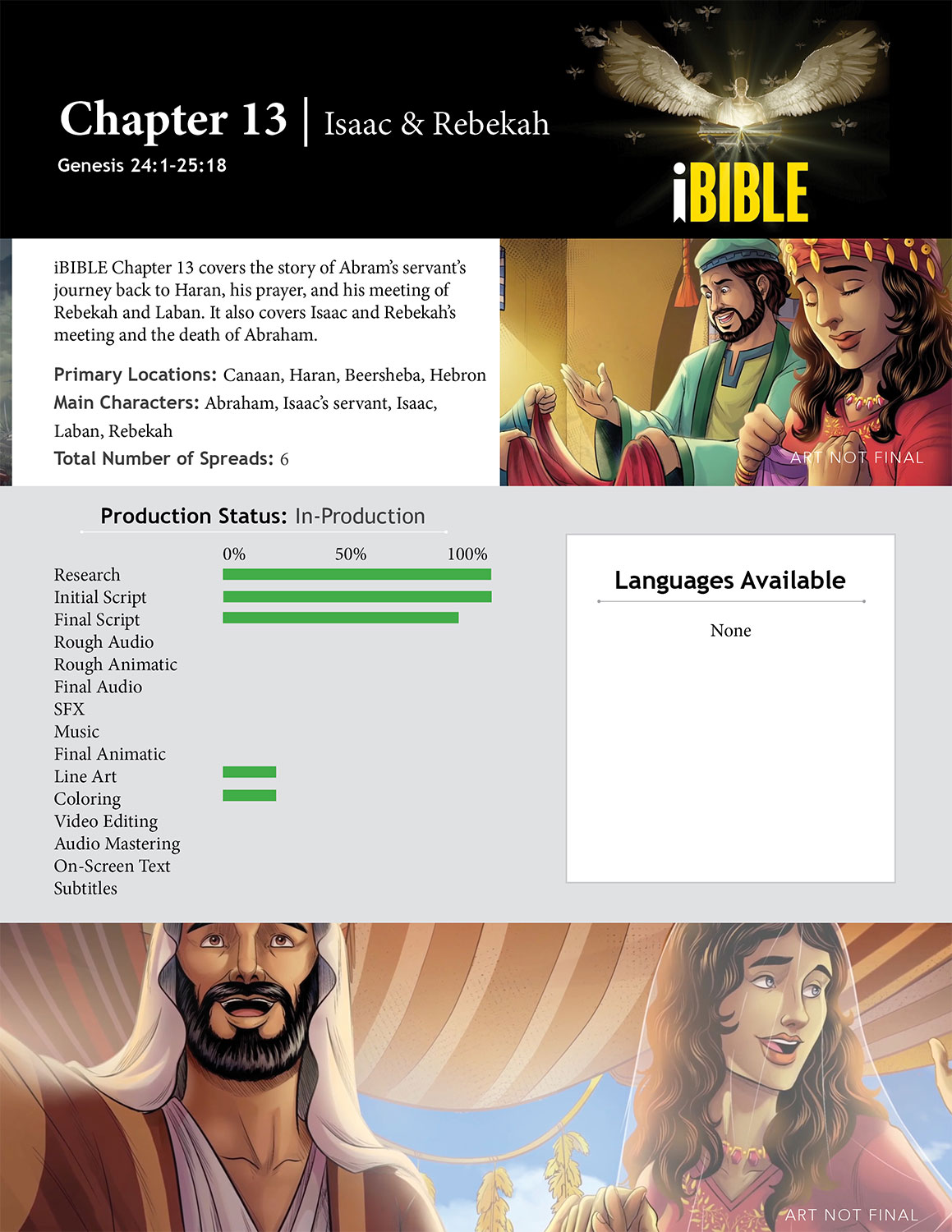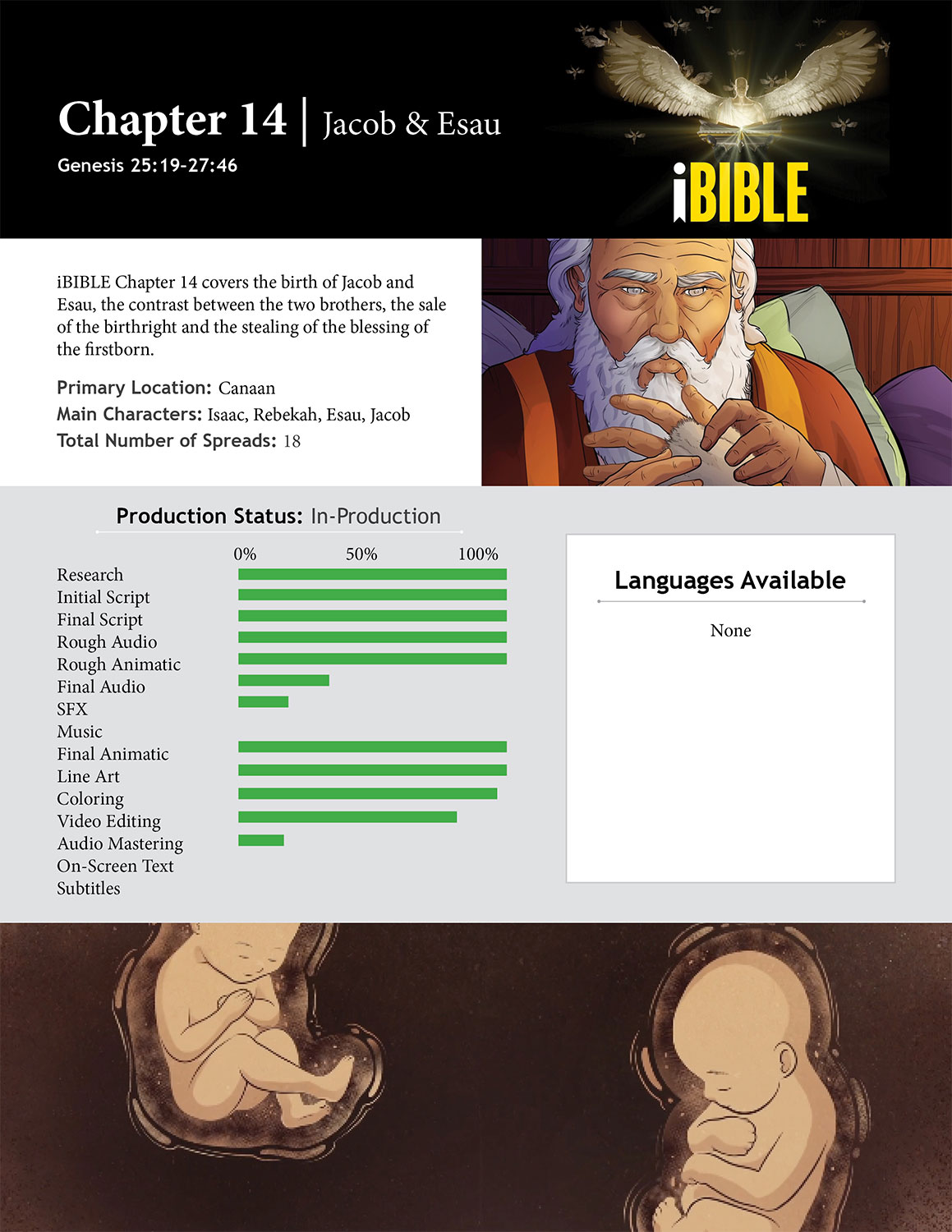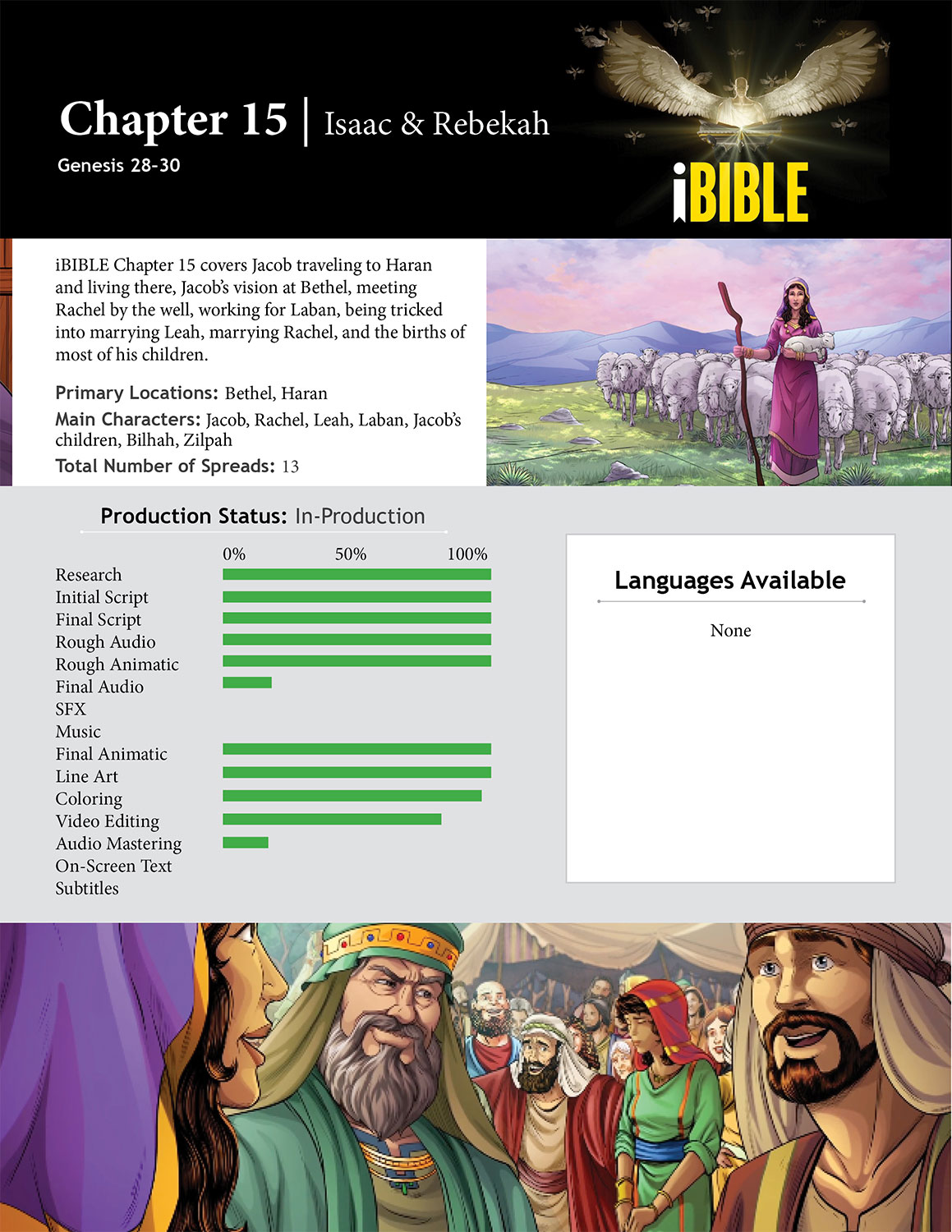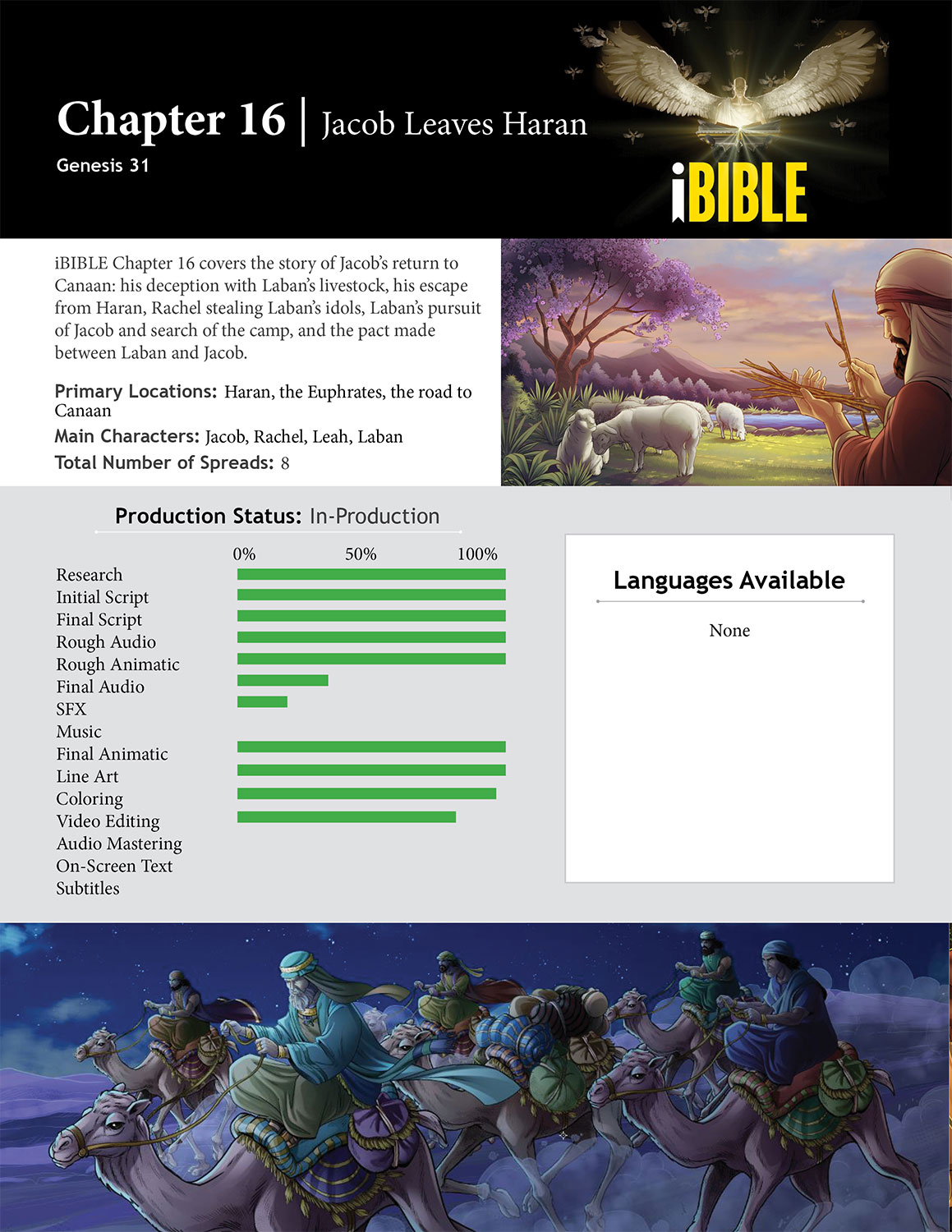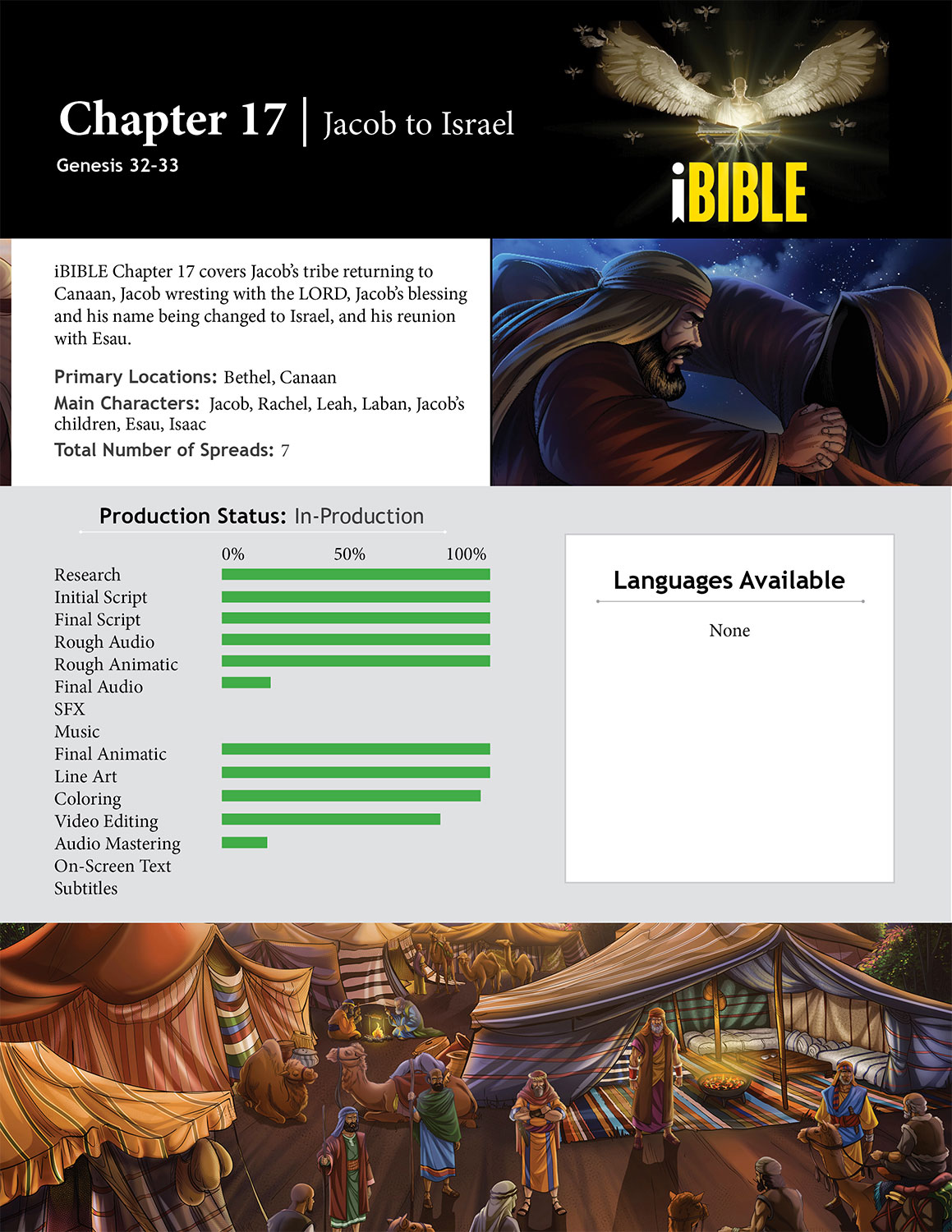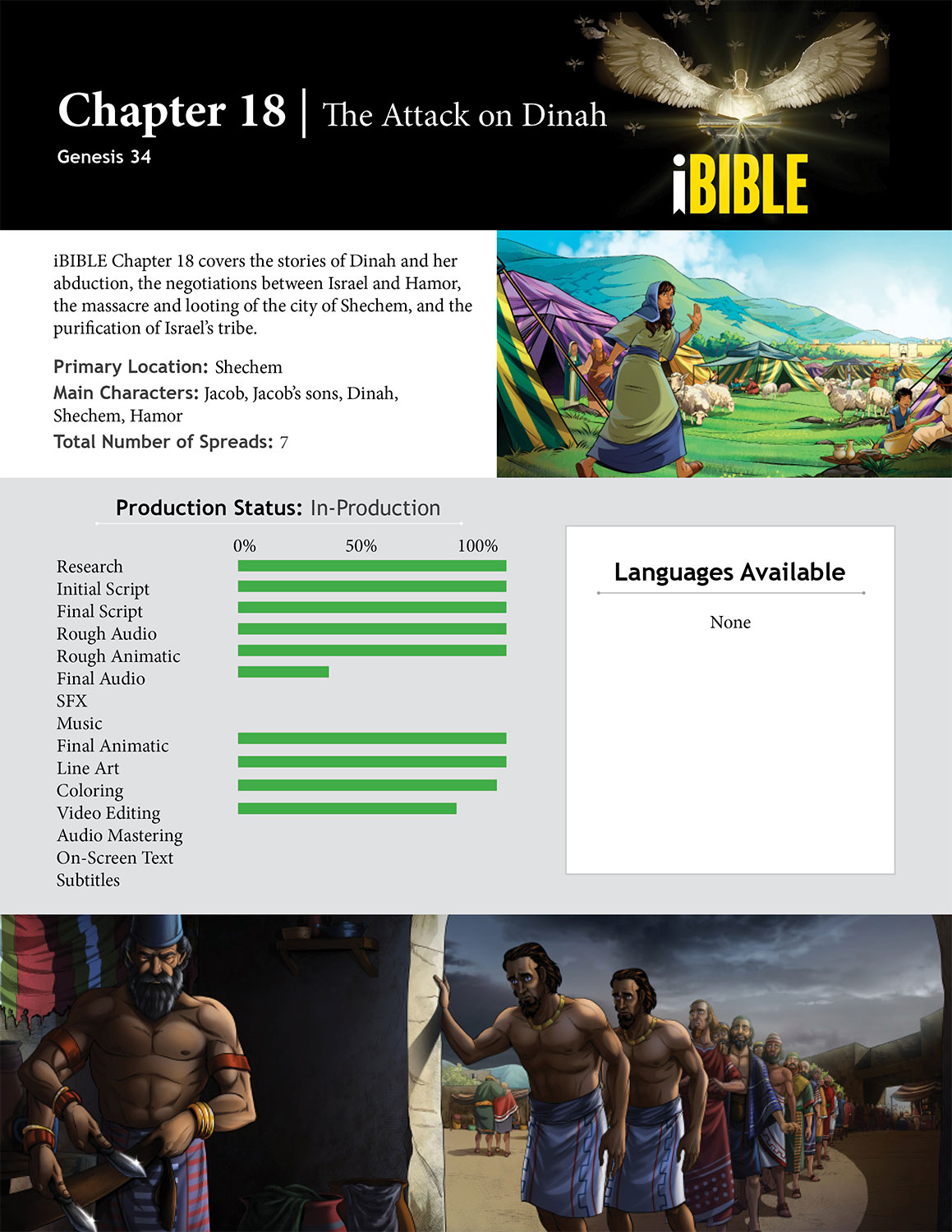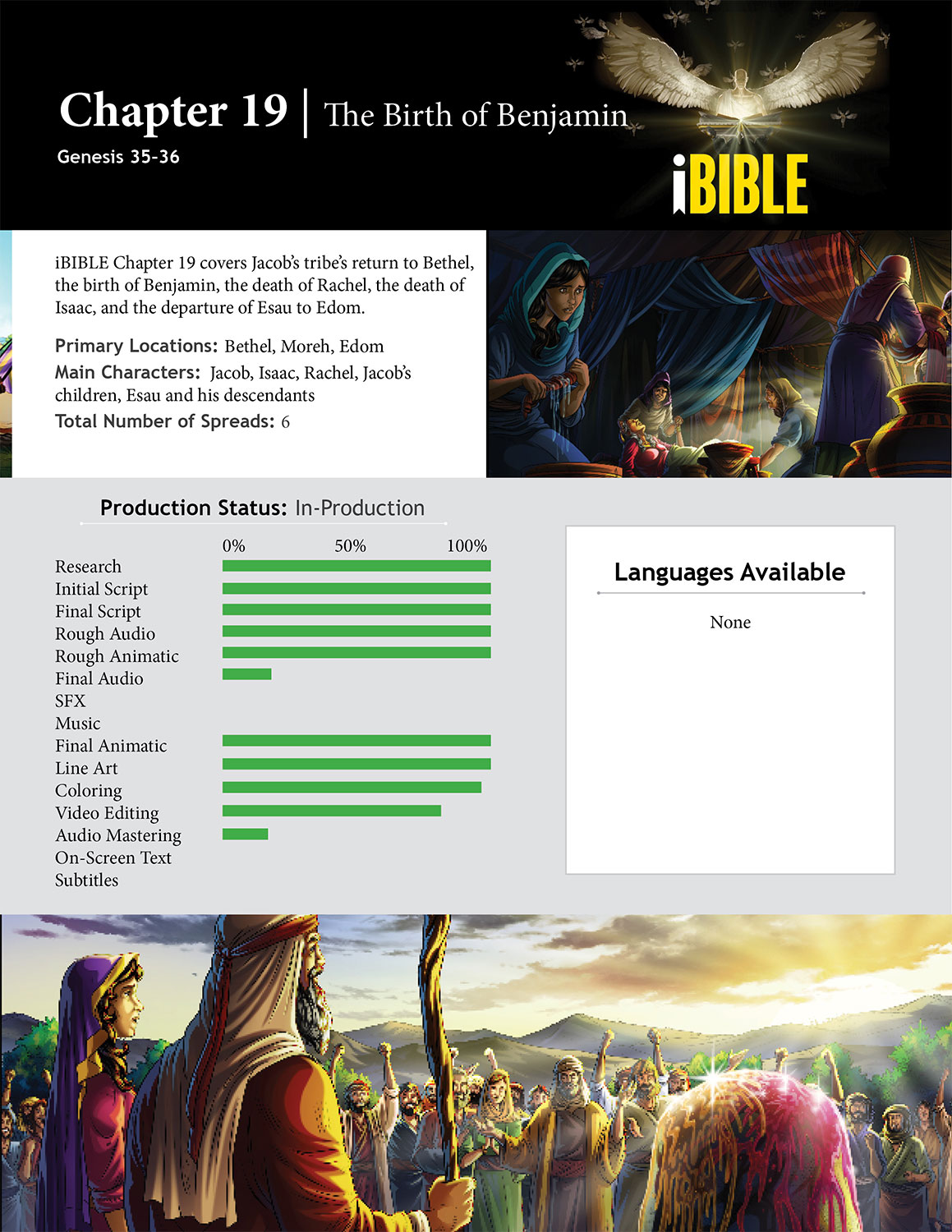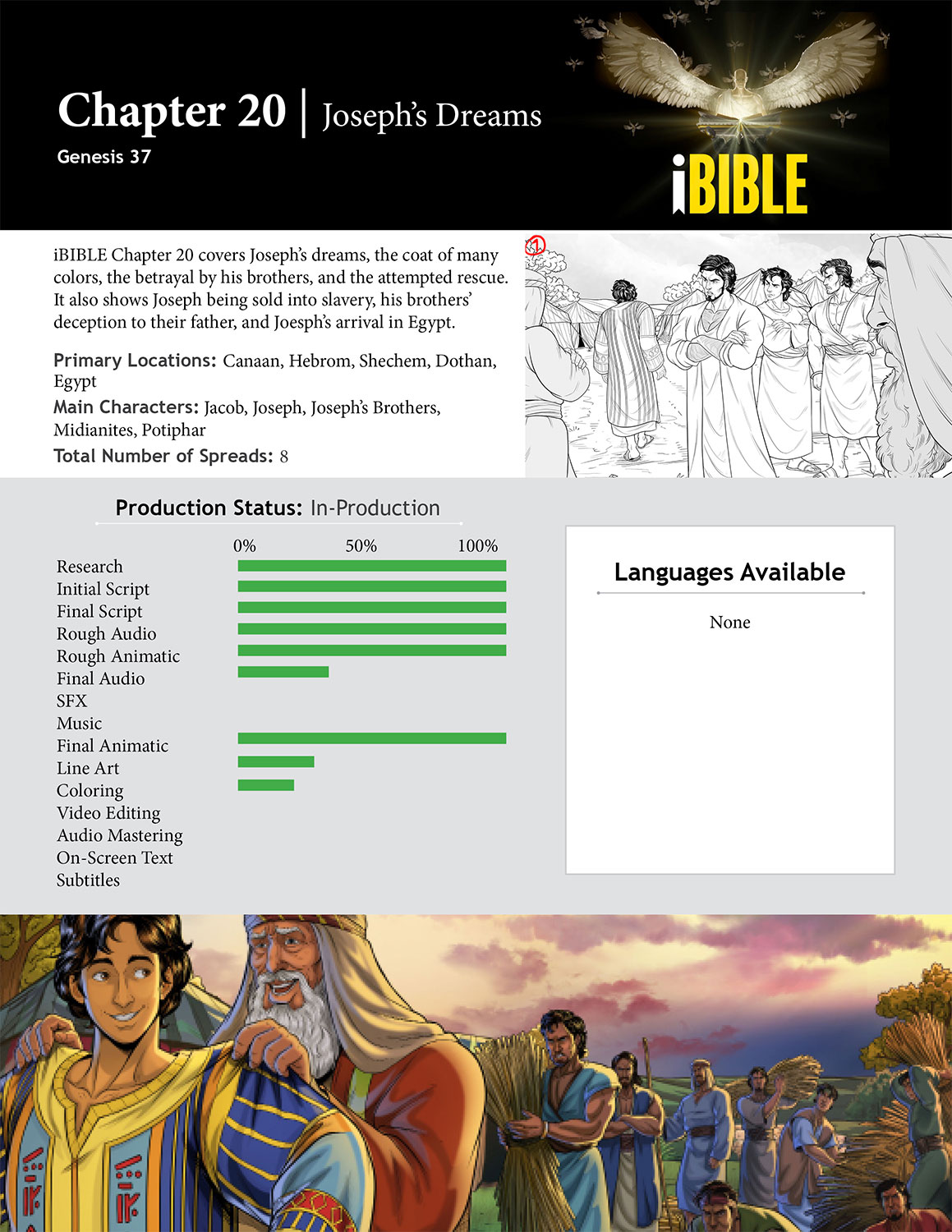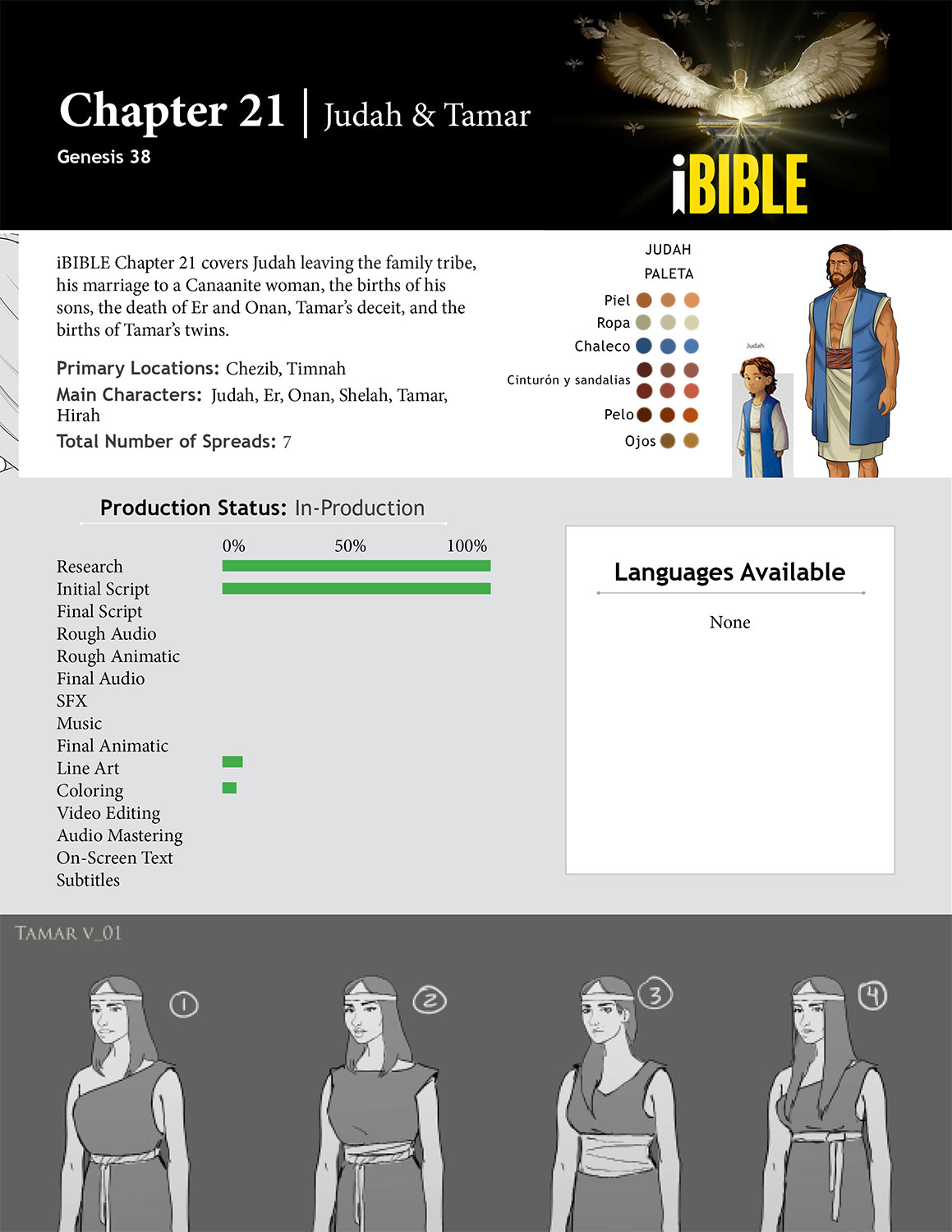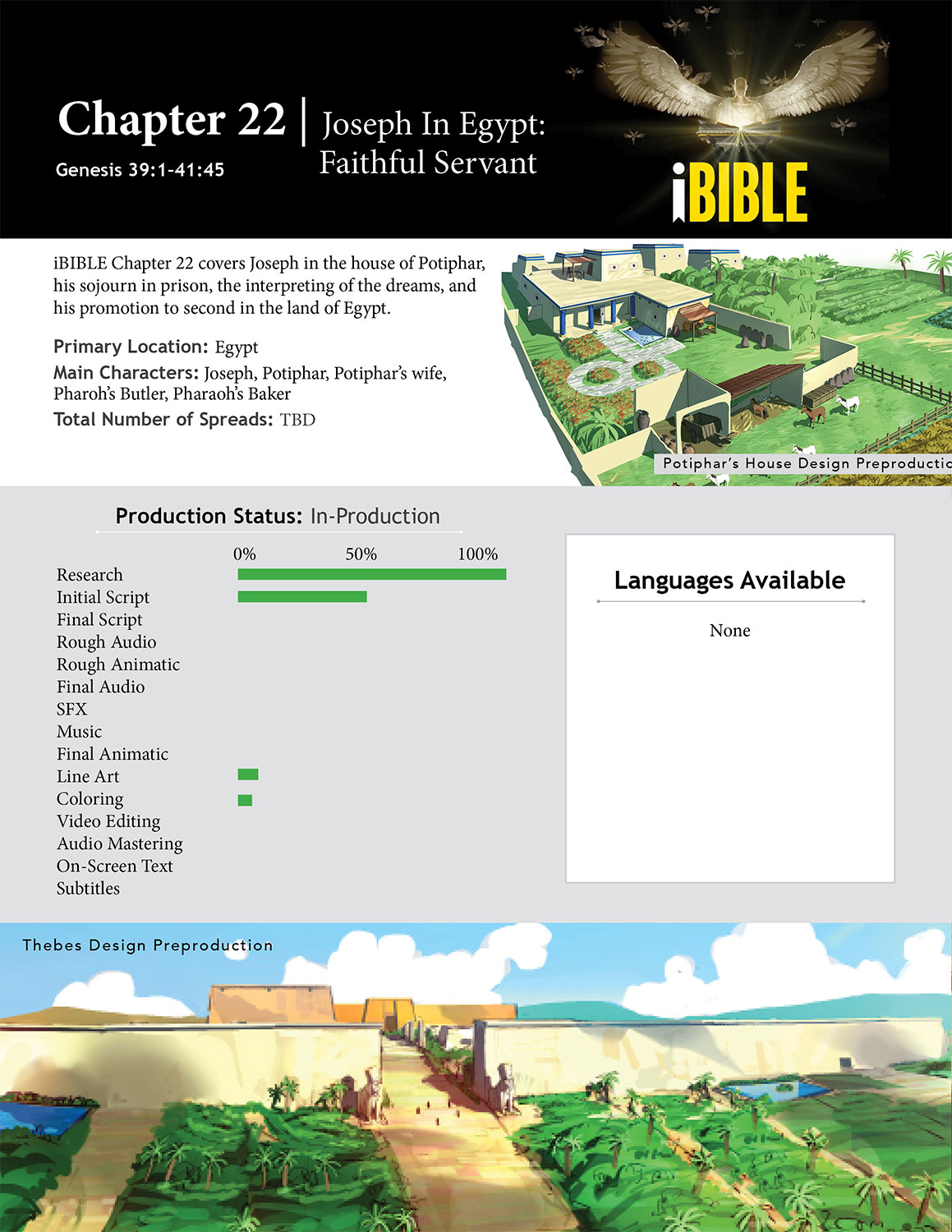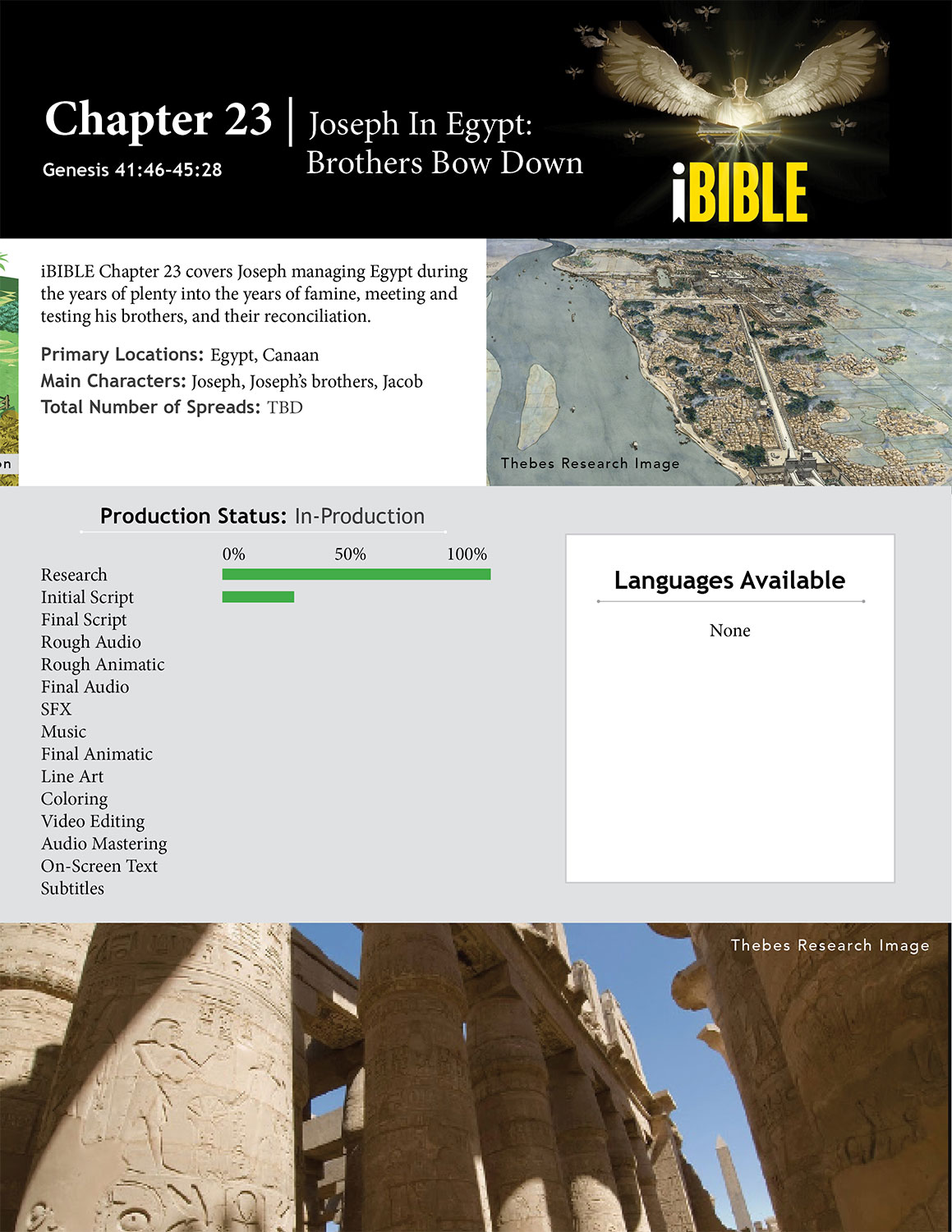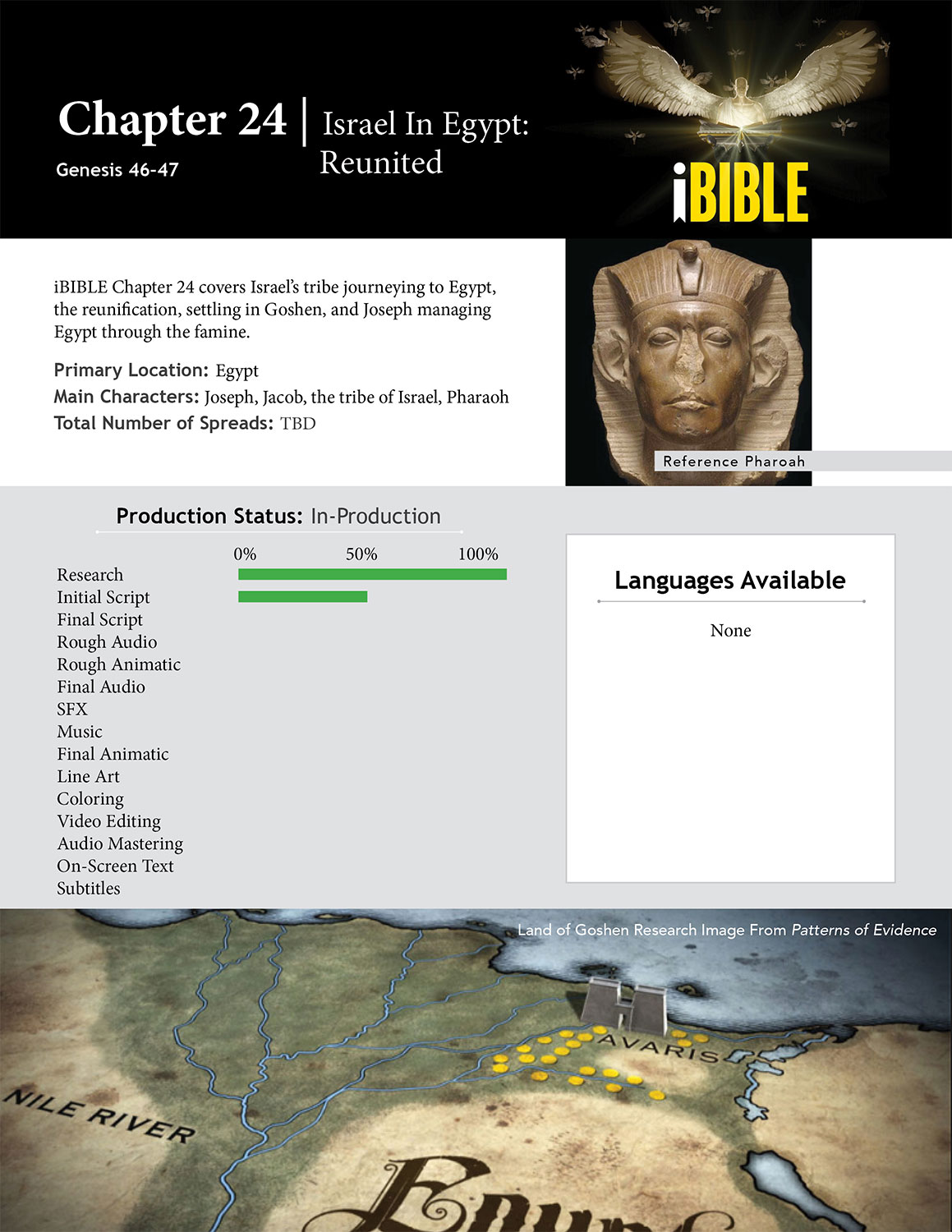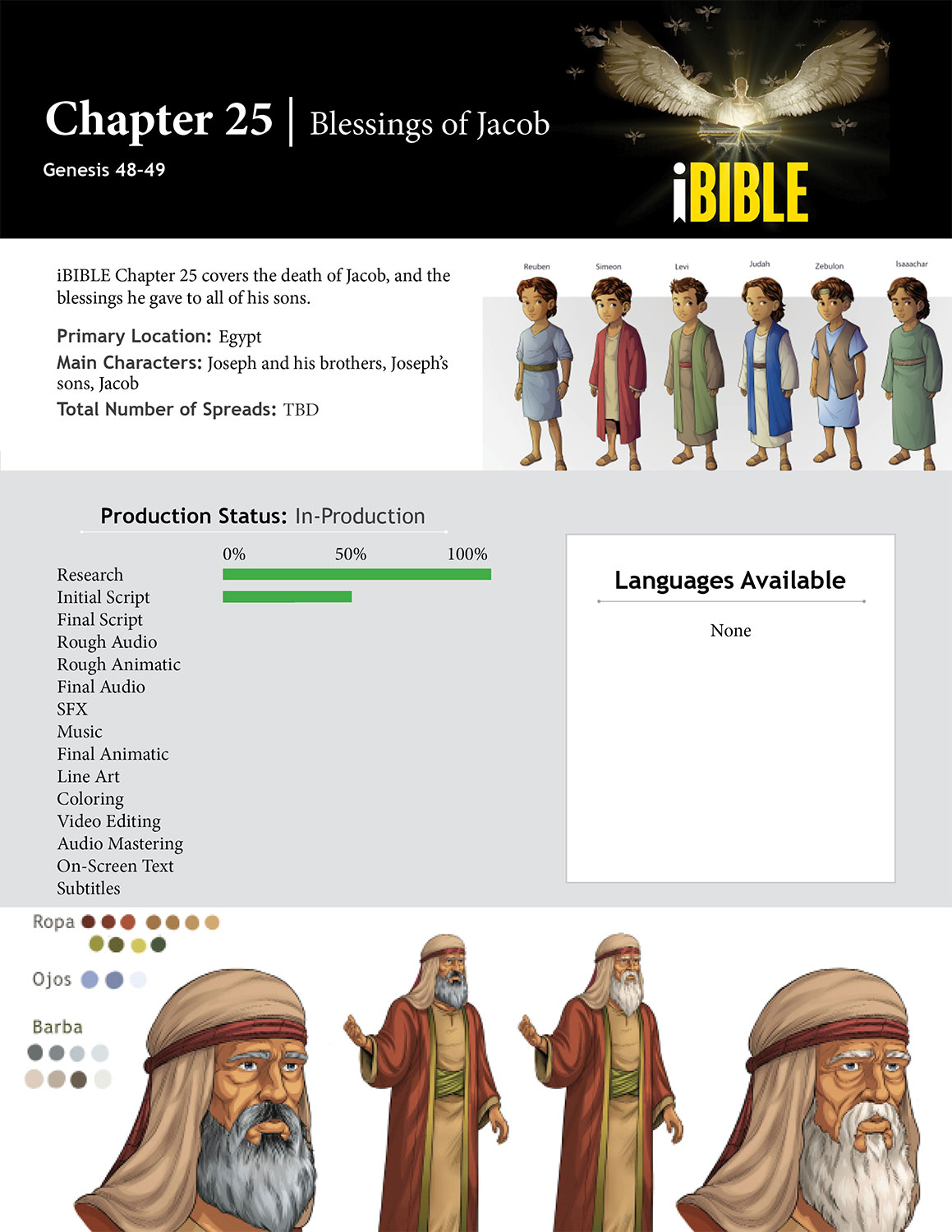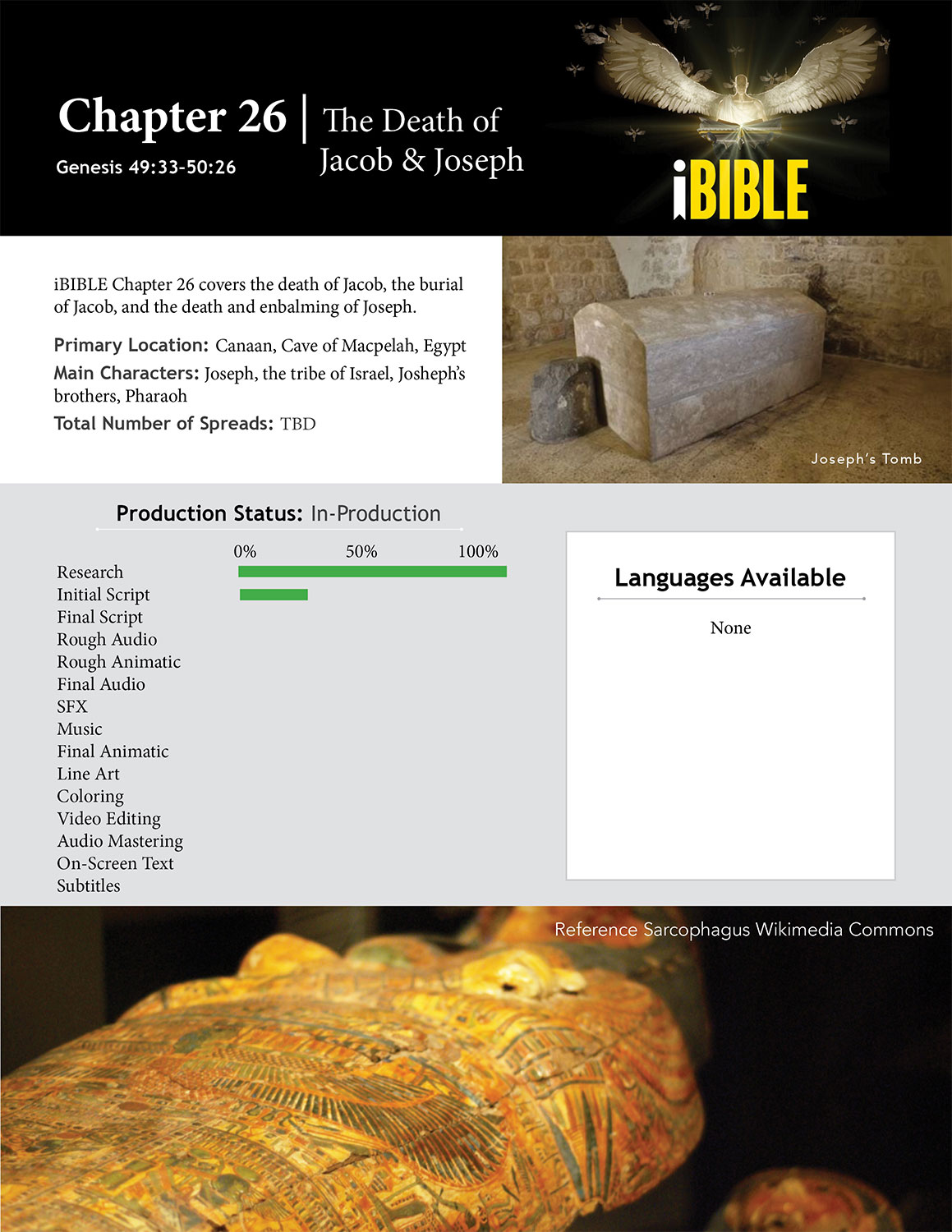The Son of the Promise
The Son of the Promise
Welcome to a behind-the-scenes look at the research and artwork that goes into making each scene of iBIBLE. Today, we look at the promise of God to provide Abram with a son.

To faithfully illustrate the promise of God to provide Abram with a son, we begin by mapping out a 25-year timeline.
The first indication of the promise is when God calls Abram out of Mesopotamia. Abram is 75 years old at this time:
Now the Lord said to Abram, “Go from your country and your kindred and your father’s house to the land that I will show you. And I will make of you a great nation, and I will bless you and make your name great, so that you will be a blessing. I will bless those who bless you, and him who dishonors you I will curse, and in you all the families of the earth shall be blessed.” —Gen. 12:1–4 [ESV]

Abram receiving the call in Mesopotamia
In conversation with God, Abram states that he is without child and has no family heirs. Then God speaks to Abram again, and this time the promise is made clear.
And behold, the word of the Lord came to him: “This man [Eliazar of Damascus] shall not be your heir; your very own son shall be your heir.” And he brought him outside and said, “Look toward heaven, and number the stars, if you are able to number them.” Then he said to him, “So shall your offspring be.” And he believed the Lord, and he counted it to him as righteousness. —Gen. 15:4–6

God telling Abram to look to the Heavens and count the stars
At this point, Abram is around 80 years old. He and Sarai have been childless all this time, and getting older. They were probably wondering how God would fulfill His promise.
Sarai then suggests that her servant, Hagar, be a surrogate mother for her, and Ishmael is born shortly thereafter. Abram is now 86 years old, and has a son—but Ishmael is not the son of the promise.
HISTORICAL SIDE-NOTE: In Mesopotamian culture during the time of Abram, when a woman was unable to bear children, the husband had the right to return the wife to her father’s house and demand the bride money be returned. Abram’s love for Sarai clearly prevented this, but understanding how important bearing children was to her duties as a wife might help to explain Sarai’s sense of urgency that led her to suggest using her servant as a surrogate mother.
Another thirteen years pass, and Abram is now 99 years old. God speaks to him again, and confirms the covenant by a ritual name change. Changing names was a feature of covenants used at that time:
“Behold, my covenant is with you, and you shall be the father of a multitude of nations. No longer shall your name be called Abram, but your name shall be Abraham, for I have made you the father of a multitude of nations. I will make you exceedingly fruitful, and I will make you into nations, and kings shall come from you…“As for Sarai your wife, you shall not call her name Sarai, but Sarah shall be her name. I will bless her, and moreover, I will give you a son by her. I will bless her, and she shall become nations; kings of peoples shall come from her.” Then Abraham fell on his face and laughed and said to himself, “Shall a child be born to a man who is a hundred years old? Shall Sarah, who is ninety years old, bear a child?” And Abraham said to God, “Oh that Ishmael might live before you!” God said, “No, but Sarah your wife shall bear you a son, and you shall call his name Isaac.” —Gen, 17:4–6; 15b–19
Shortly thereafter, God’s promise is confirmed once again. Abraham hosts the Lord and the two angels on their way to Sodom:

The Lord promises Abraham a son while they eat together
The Lord said, “I will surely return to you about this time next year, and Sarah your wife shall have a son.” And Sarah was listening at the tent door behind him. Now Abraham and Sarah were old, advanced in years. The way of women had ceased to be with Sarah. So Sarah laughed to herself, saying, “After I am worn out, and my lord is old, shall I have pleasure?” The Lord said to Abraham, “Why did Sarah laugh and say, ‘Shall I indeed bear a child, now that I am old?’ Is anything too hard for the Lord? At the appointed time I will return to you, about this time next year, and Sarah shall have a son.” —Gen. 18:10–14
And, just as God promised Abraham 25 years earlier, Abraham and Sarah had a son and named him Isaac. His name means “he will laugh.” The timeless events of Scripture, including those in the Old Testament, weave a beautiful tapestry of God’s plan for mankind. iBIBLE is committed to highlighting all of these events using only Scripture in its scripts. Thank you for helping us bring a free visual and interactive Bible to the world!

Isaac: the Son of the Promise

Sarah holds the child promised to her
As we continue to work on iBIBLE, we seek the Holy Spirit’s guidance to help us remain true to the Scriptures. Each and every decision for visuals and content for iBIBLE are carefully researched, and prayerfully executed. We look forward to bringing the entire Biblical narrative to the world in this unique and innovative format. Thank you for your prayers and support as we continue to produce iBIBLE and soon make it available for free to the world.




